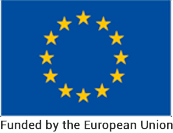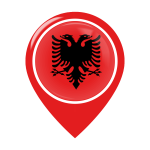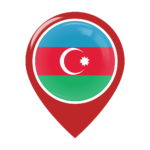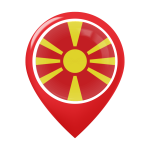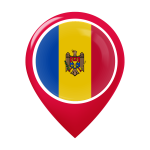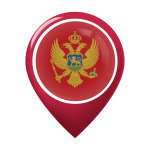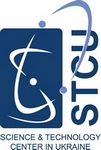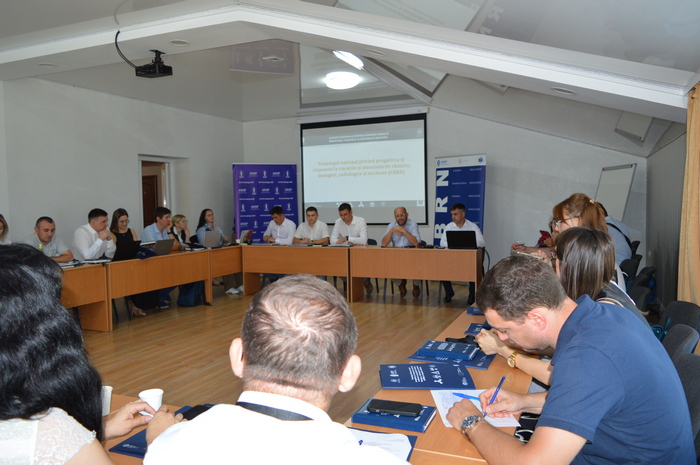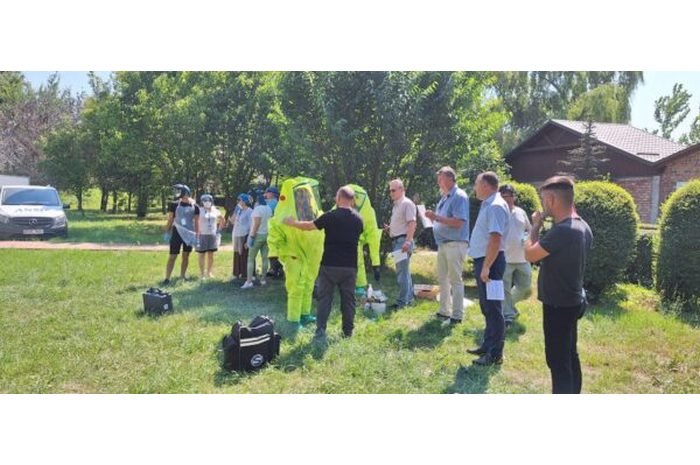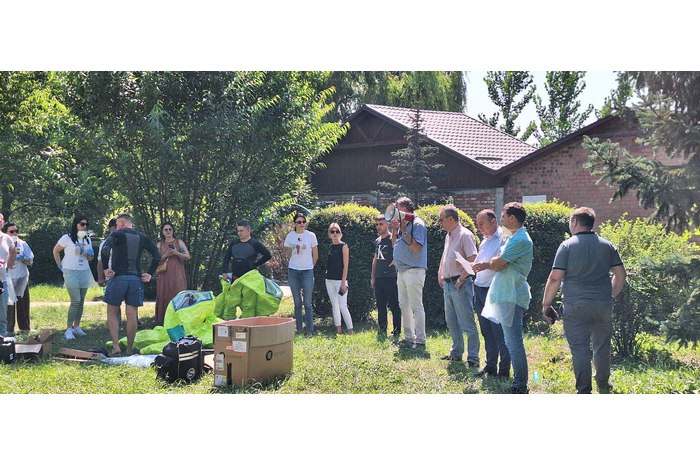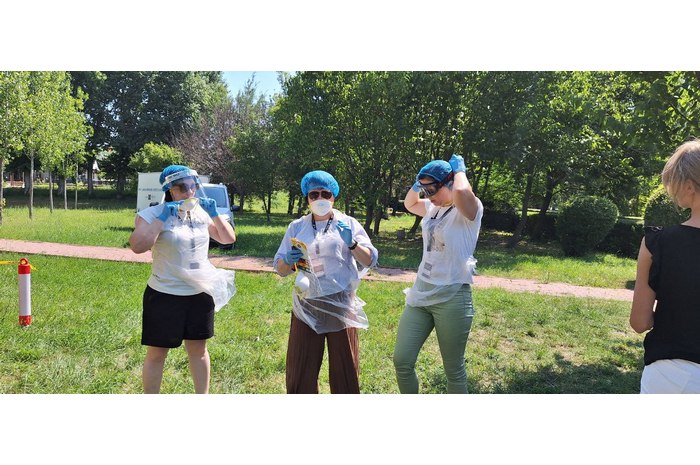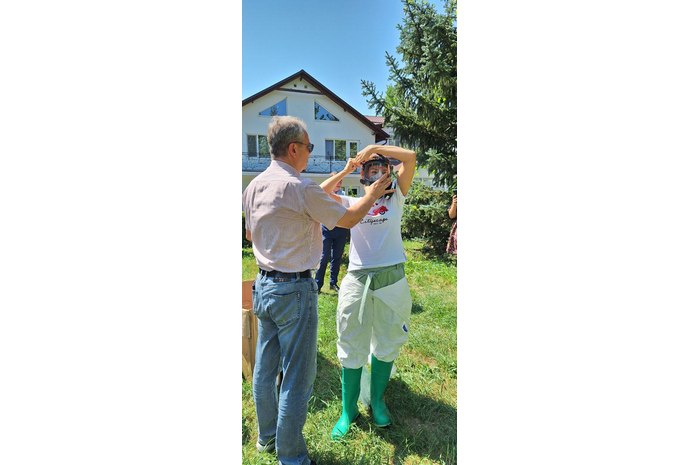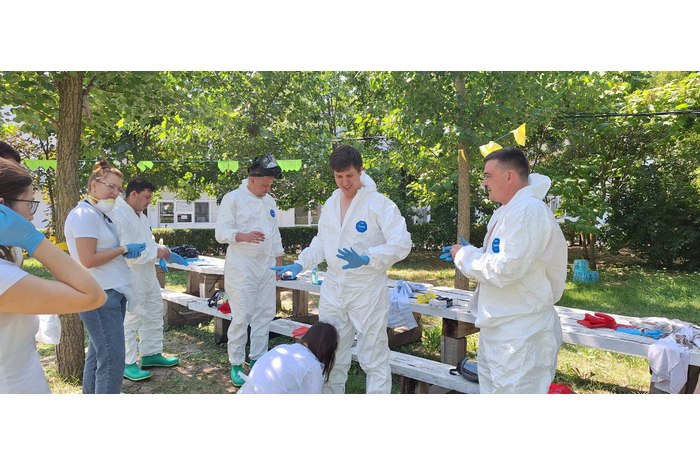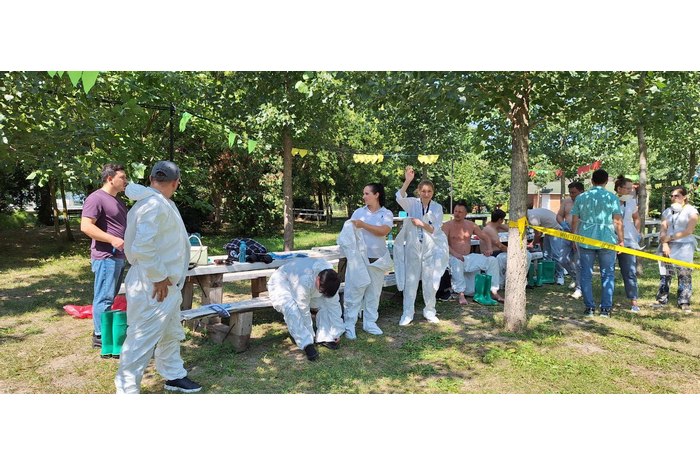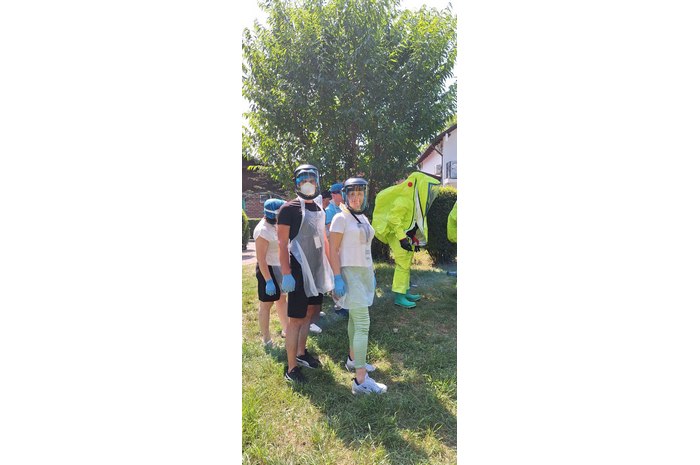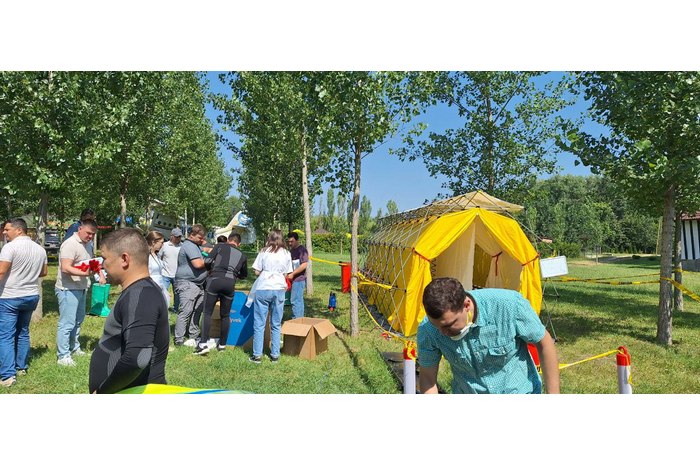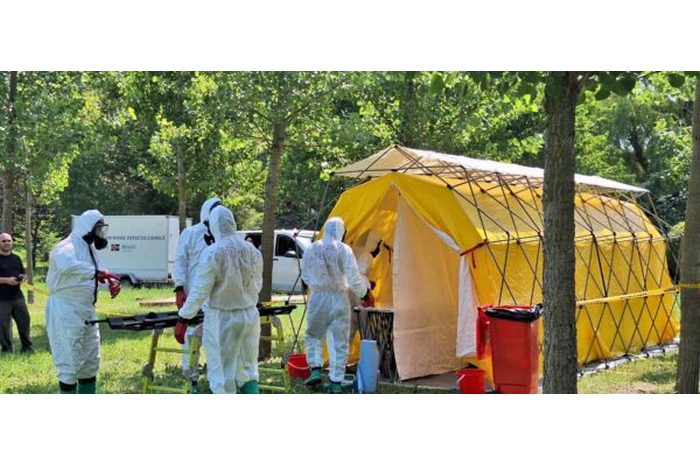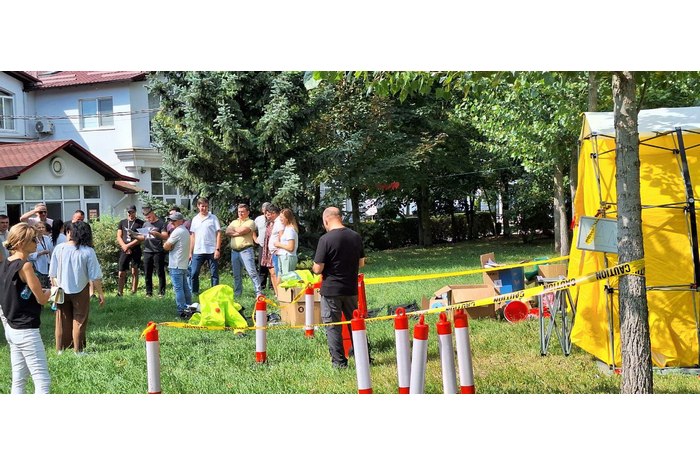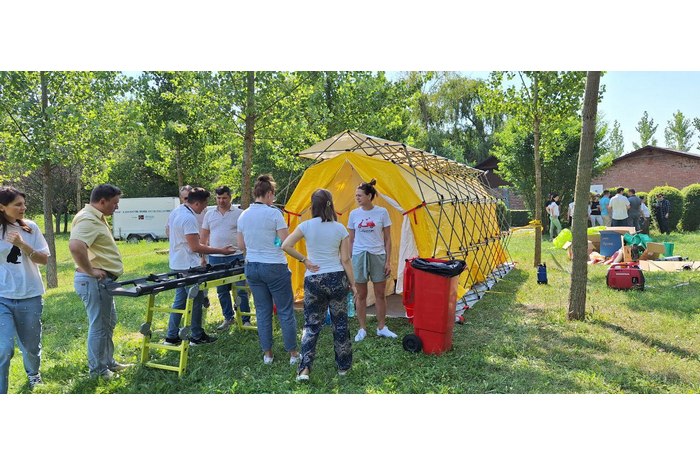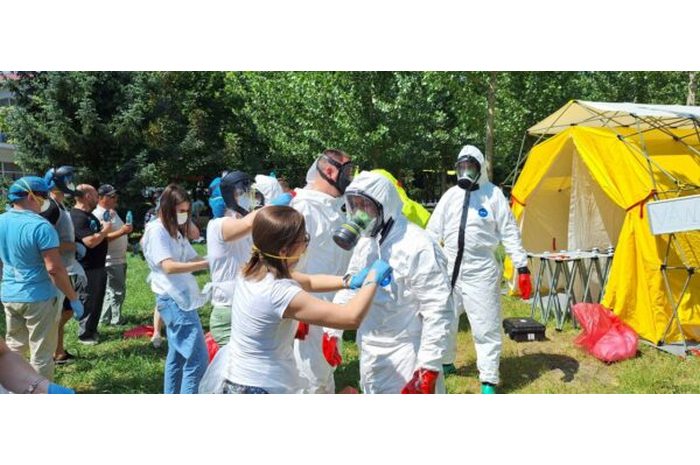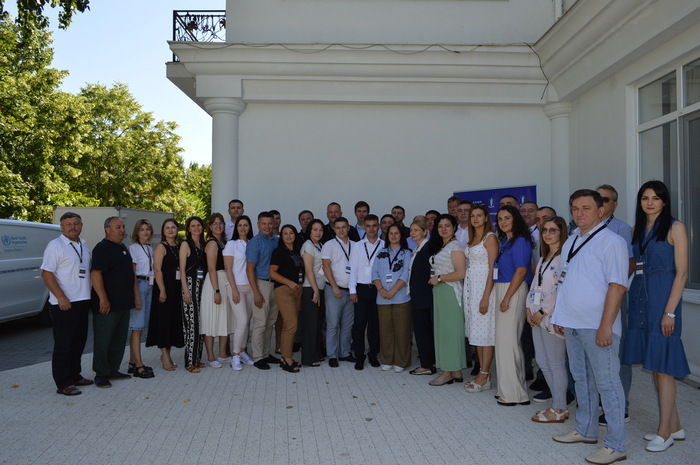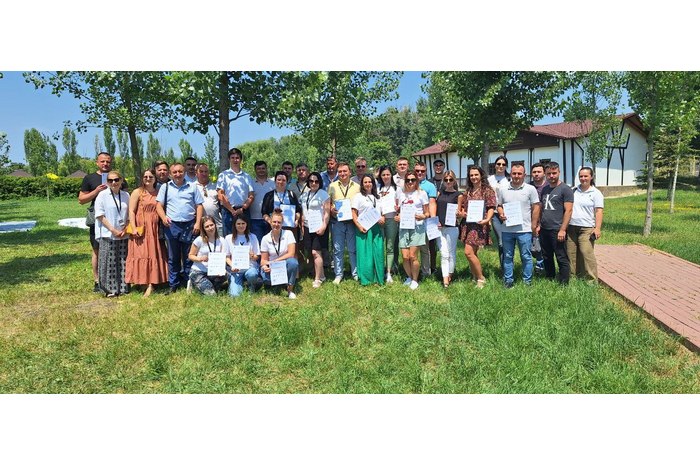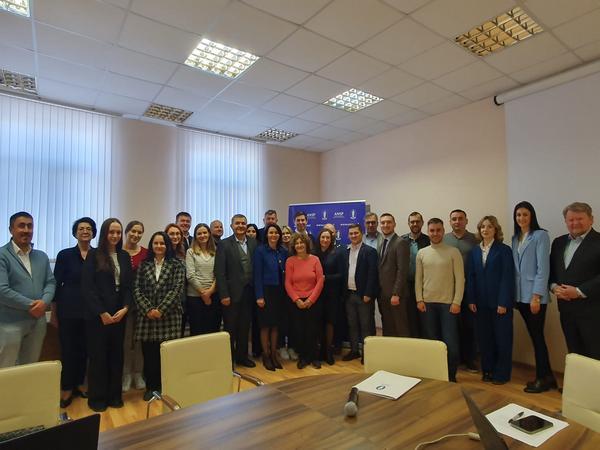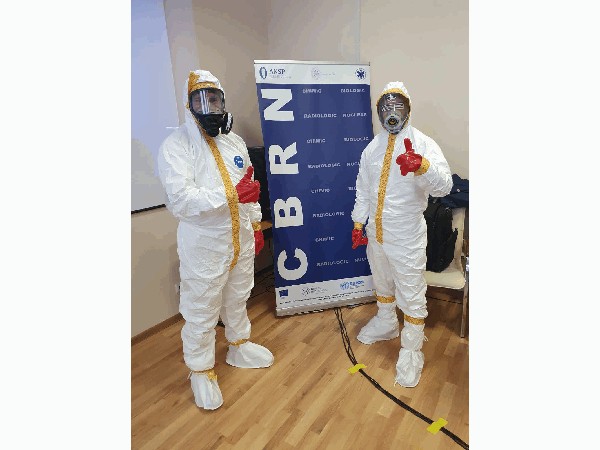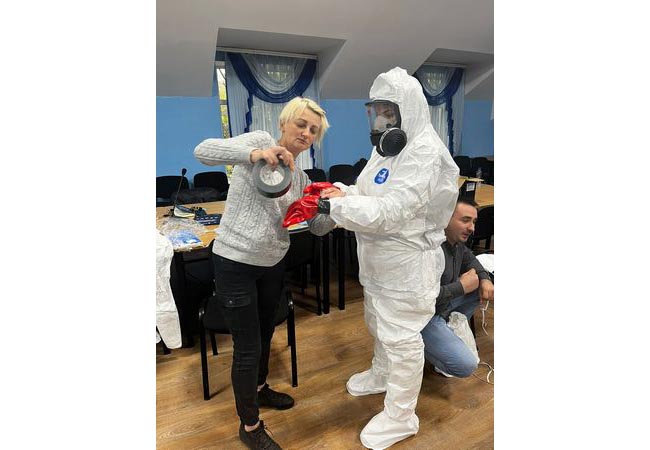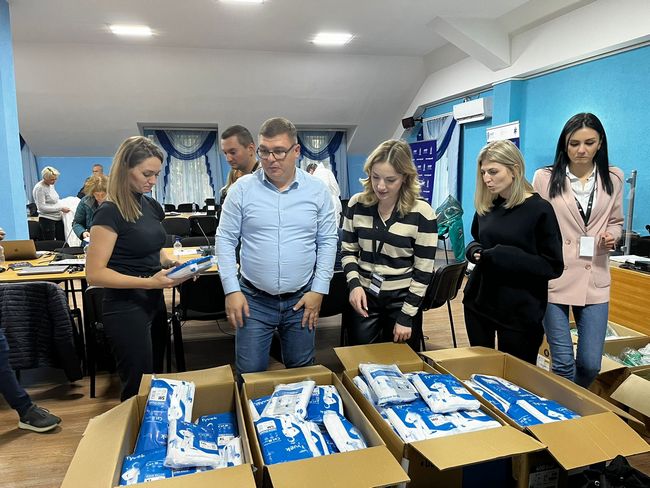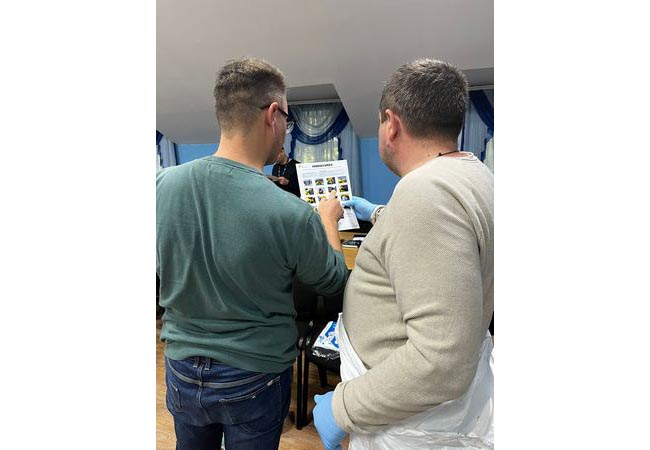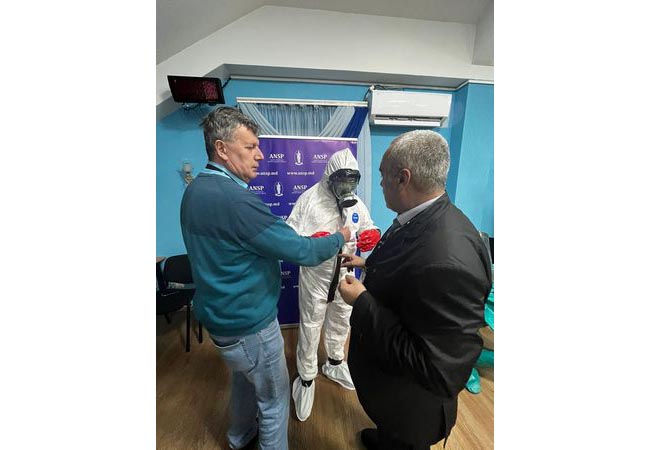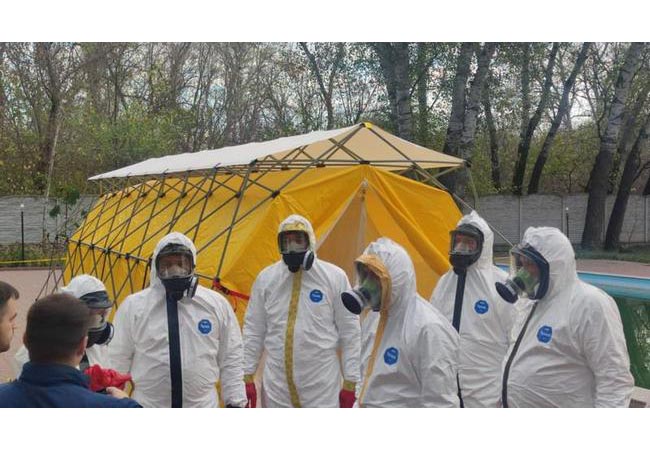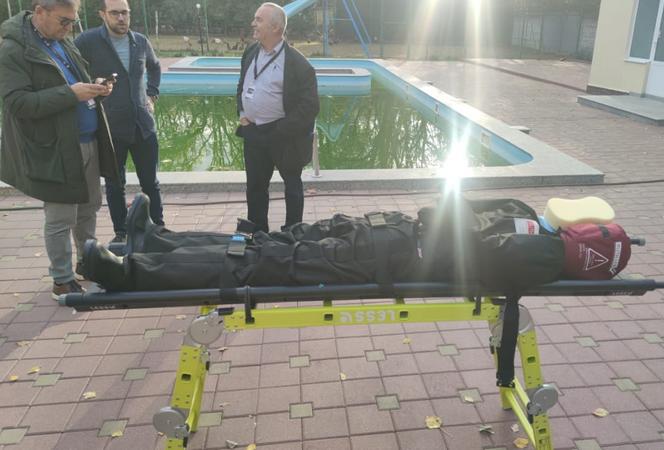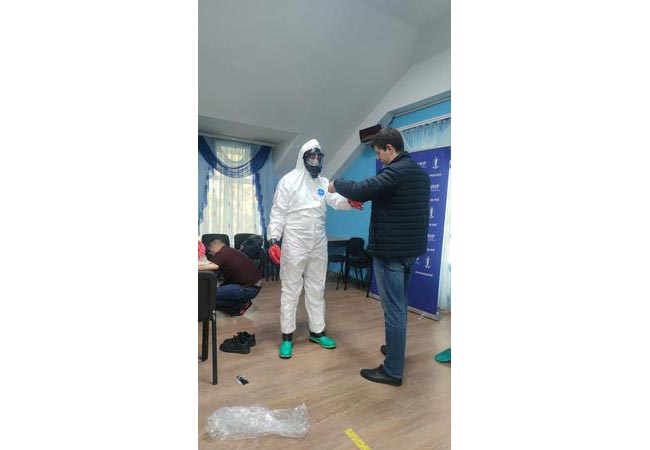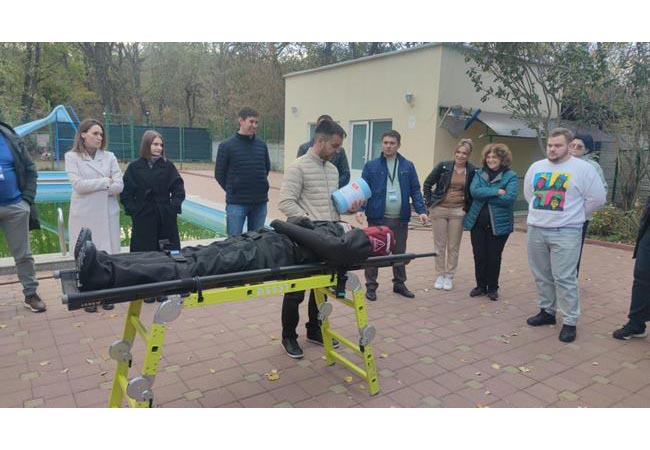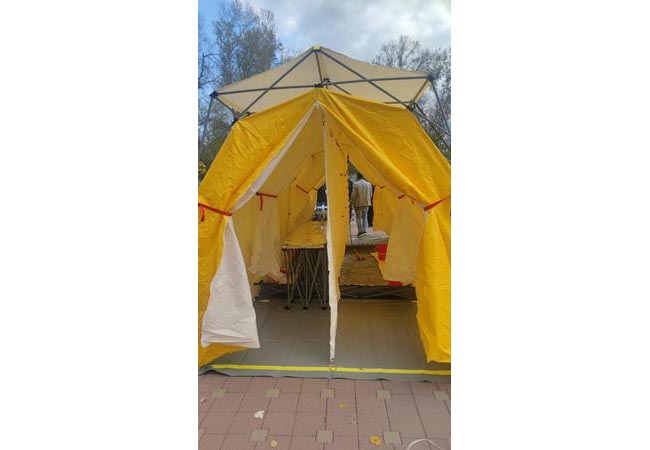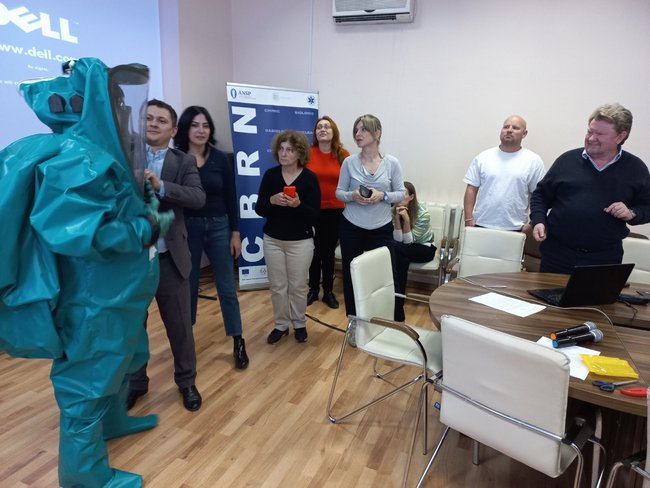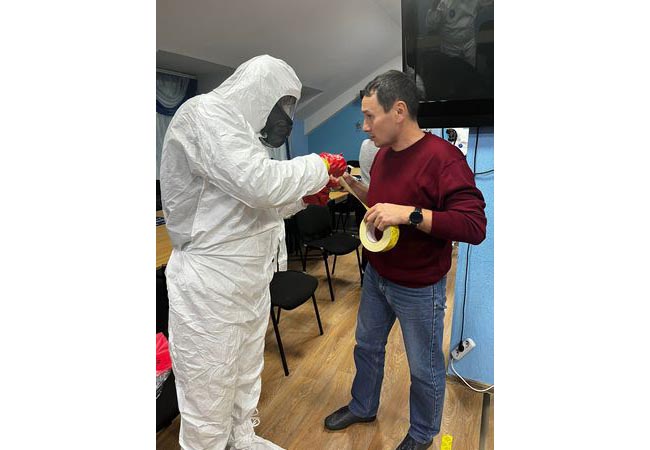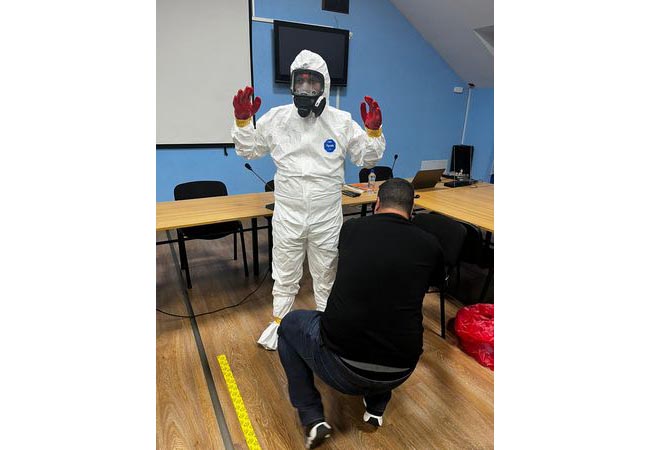Training Center in The Republic of Moldova
Contacts
- National Agency for Public Health, Republic of Moldova, Chisinau municipality, MD-2028, Gh. Asachi str. 67a
- By email: roman.coretchi@ansp.gov.md
- National Center for Pre-hospital Emergency Medical Assistance, Republic of Moldova, Chisinau municipality, MD-2025, Str. Constantin Vîrnav 16.
- By email: leontiimacarov@gmail.com
Downloadable materials
Recent News
Successful Completion of the Second National CBRN Emergency Medicine Training in Moldova
From July 8 to 10, 2024, the Science and Technology Centre in Ukraine (STCU), in collaboration with the National Agency for Public Health (NAPH) of the Republic of Moldova, successfully conducted the second National CBRN Emergency Medicine Training. This significant event brought together over 40 experts from various institutions, including the Ministry of Health, NAPH, Public Medical-Sanitary Institution National Center for Prehospital Emergency Medical Assistance (PMSI NCPMA), Public Medical-Sanitary Institution "Timofei Moșneaga" Republican Clinical Hospital (PMSI RCH), Public Medical-Sanitary Institution Institute of Emergency Medicine (PMSI IEM), and the "Nicolae Testemitanu" State University of Medicine and Pharmacy (SUMP).
The workshop featured a comprehensive series of interactive theoretical and practical sessions addressing CBRN medical threats and public health emergencies. Participants enhanced their theoretical understanding through tabletop exercises designed to simulate the medical system's response to a chemical accident. These exercises focused on key areas such as decision-making, information collection and analysis, preparation, and response.
Veaceslav Guțu, Deputy Director of NAPH, highlighted the event's importance in facilitating the exchange of knowledge, experiences, and best practices in CBRN emergency preparedness, response, and management. By integrating theoretical knowledge with practical skills, NAPH aims to establish a resilient and coordinated medical response system for CBRN emergencies in the Republic of Moldova.
The workshop culminated in a large-scale field exercise simulating a chemical accident at an industrial enterprise producing hazardous chemicals. This exercise aimed to hone practical response skills to CBRN threats and public health emergencies, focusing on medical triage, emergency medical assistance, victim evacuation, laboratory investigations, and public health measures. The simulation provided a realistic scenario to test and develop participants` capabilities.
Participants demonstrated active engagement and were strongly committed to ongoing training to improve their preparedness and response to CBRN emergencies. The initiative aimed to strengthen the preparedness of the medical system and specialists involved in responding to public health emergencies of CBRN etiology. This endeavor was supported by the EU CBRN Centers of Excellence Program under Project 88, "Strengthening CBRN Medical Preparedness and Response Capacities in Southeastern and Eastern European Countries."
Successful Completion of the First National CBRN Emergency Medicine Training in Moldova
The Science and Technology Centre in Ukraine (STCU), in partnership with the National Agency for Public Health of the Republic of Moldova and the National Center for Pre-hospital Emergency Medical Assistance of the Republic of Moldova, is delighted to announce the successful conclusion of the National CBRN Emergency Medicine Training. This training, held from November 8 to November 10, 2023, in Chisinau, Moldova, was made possible through the generous support of the European Commission's Foreign Policy Instrument, underscoring their dedication to bolstering preparedness and response capabilities in the region.
The National CBRN Emergency Medicine Training was a comprehensive initiative designed to equip key personnel with the essential skills and knowledge required to respond effectively to chemical, biological, radiological, and nuclear (CBRN) emergencies. This intensive training program was tailored to several key target groups:
First Line CBRN Emergency Medicine Responders: This segment focused on the pre-hospital management of CBRN Emergency Medical Preparedness and Response Operations. First responders acquired vital techniques and protocols for initial assessment, triage, decontamination, and patient stabilization during CBRN incidents.
Second-Line CBRN Emergency Medicine Responders: For second-line responders, the emphasis was on hospital management of CBRN Emergency Medical Preparedness and Response Operations. This training bolstered the capabilities of healthcare professionals working in hospital settings, enabling them to handle CBRN-related medical emergencies effectively. This included patient care, decontamination procedures, and coordination with first responders.
Managers at These Same Institutions: Managers responsible for overseeing CBRN emergency preparedness and response operations were provided with training to enhance their skills in strategic planning, resource allocation, coordination, and decision-making during CBRN incidents.
Para-medical Personnel: This segment offered specialized training to para-medical personnel, including emergency medical technicians and paramedics. Participants honed their skills in providing immediate care and support to individuals affected by CBRN incidents in pre-hospital settings.
Medical Personnel: Medical professionals, including doctors, nurses, and specialists, received advanced training to deepen their understanding of CBRN emergency medicine. They gained insights into advanced techniques for diagnosis, treatment, and patient management in CBRN-related scenarios.
The National CBRN Emergency Medicine Training was specifically tailored to address the unique requirements of each target group. It aimed to establish a robust and well-coordinated response system in Moldova, enhancing participants' practical knowledge through hands-on exercises and real-life scenario-based simulations.
This immersive and interactive training experience facilitated knowledge exchange, networking opportunities, and collaboration among CBRN emergency medicine professionals. It equipped participants with the skills and expertise required to respond effectively to CBRN emergencies, ensuring the safety and well-being of the Moldovan population.
While the National CBRN Emergency Medicine Training has concluded, further details about registration, program highlights, and logistical information for future opportunities will be provided in the coming months. Interested individuals and organizations are encouraged to stay tuned for updates on this crucial training initiative.
